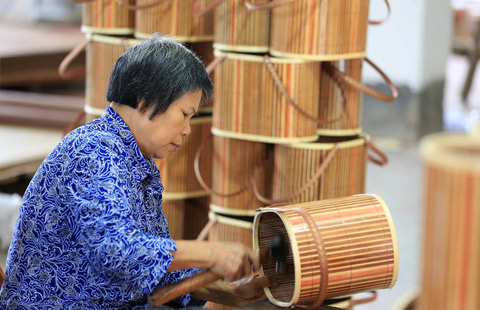Canada ready for Chinese tourist arrivals
(Xinhua) Updated: 2012-04-21 15:46VANCOUVER - Canada is rolling out the welcome mat in an effort to get more Chinese travelers to visit the country as the May Labor Day holiday is approaching.
After being one of the last major countries to receive Aprroved Destination Status from China in June 2010, Canada, more than 242,000 Chinese tourists visited the country last year in its first full year of ADS. With the designation making it easier for a Chinese tourist to travel to an approved destination, a Canadian Tourism Commission (CTC) official said in a recent interview that he is confident the numbers will realistically rise by 12 to 15 percent this year.
Greg Klassen, the CTC senior vice president of marketing, said through the country's Economic Action Plan, a national stimulus spending program, the government body spent about $3 million in marketing and advertising costs in 2011 targeted at prospective Chinese tourists. Through the promotion, "Hello Canada," it was the first time the agency had been able to "communicate directly" with the Chinese public after previously working through tour operators and travel agents.
Since then, he added, an additional $2 million in promotions targeted directly at Chinese travelers, a group that spent $411 million in the country last year, has been invested.
"We're in the business of attracting tourists from around the world and we look to invest where the opportunities and the growth are. China is certainly one of those kinds of markets," Klassen said, adding Chinese arrivals to Canada in January were up more than 10 percent compared with the same period of the previous year.
With spring in full bloom in most of Canada's major centers in May, Klassen said the CTC doesn't promote special events to Chinese visitors during golden weeks and key travel periods per say, rather it is focused on "communicating the breadth and depth of experiences" tourist can have in the country's four iconic tourism destinations - Vancouver, the Rockies, Toronto/Niagara Falls and Quebec.
"Those (destinations) tend to be the first time (visitors) or the people who don't know a lot of about Canada. But what we're actually finding is the growth in Chinese travel to Canada is beginning to become fully independent travelers," he said.
"These are people who aren't necessarily traveling in groups but are more comfortable traveling on their own. They're probably seasoned travelers and have been to many places around the world and they are quite comfortable renting a car and creating their own trips and experiences."
To publicize Canada beyond the big-four destinations, the CTC is launching its "In Canada you can be a star" promotion on April 24 to 70 editors of leading Chinese publications and online portals. Through a partnership with China's Travel Channel, five couples will be selected from submitted videos to go to Canada.
Klassen said a camera crew will follow the couples on their Canadian journey and the results will be broadcast in China. An American Idol-style panel of judges and viewers will then select the winning couple who best portray the Canada experience.
"It's almost a bit of a contest, a game show, but the prize is really the opportunity to broadcast (the Canadian experience) in China."
With an estimated 1.3 million Canadians of Chinese origin, Klassen said the country has a competitive advantage over other western nations when it comes to properly hosting Chinese tourists. He cited the huge Chinese populations in Toronto and Vancouver, and to a less extent Montreal, where Chinese tourists will be well catered to in accommodation, activities, food, language and getting around.
"If it's a problem for Canada it's certainly a problem for the rest of the world," he said.
"In the end, I think in major centers across Canada they (Chinese tourists) are absolutely going to be able to be served in their home language."
- Amazon to open Shanghai platform
- Nuclear power plant projects to be initiated in Liaoning
- Work starts on AkzoNobel decorative paints plant in Qionglai
- Himalayan Airlines plans maiden flight in October
- Wetlands protection prioritized for environmental concerns
- Greenland-Bank of Communications in $5b deal
- Climate of opportunity
- FTAAP study 'up for consideration'
















